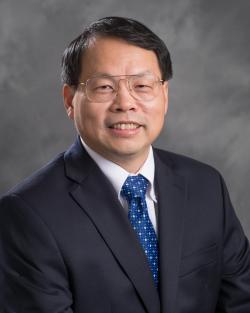Ecological Society of America honors paper for systems integration – an MSU hallmark
Add Summary

A unified paradigm to meet growing global challenges has been recently recognized by the Ecological Society of America (ESA) as “the greatest contribution” to sustainability science that integrates ecological and social sciences.
The paper, written by Jianguo “Jack” Liu, Michigan State University’s director of the Center for Systems Integration and Sustainability, and colleagues will receive the Sustainability Science Award at the society’s annual meeting in Portland, Ore., in August.
The recognized paper “Systems Integration for Global Sustainability” appeared in Science Magazine in February 2015. The paper made the case that the growing global challenges have rendered sharply segregated expertise obsolete. Disciplinary approaches to crises like air pollution, biodiversity loss, climate change, food insecurity, and energy and water shortages, are not only ineffective but also can make many of these crises worse because of counterproductive interactions and unintended consequences.
“The real world is integrated,” said Liu, Rachel Carson Chair in Sustainability and the paper’s lead author. “Artificially breaking down the real world into separate pieces has caused many global problems. Solving these problems requires systems integration – holistic approaches to integrate various pieces of the real world at different organizational levels, across space and over time.”
“Artificially breaking down the real world into separate pieces has caused many global problems. Solving these problems requires systems integration – holistic approaches to integrate various pieces of the real world at different organizational levels, across space and over time.”
The paper’s authors, in essence, paint a new paradigm of research that crosses boundaries among natural and social science disciplines, as well as other disciplines such as engineering and medical sciences.
They assert that scientific advances and effective policies must be integrated and that engagement between researchers and stakeholders is critical.
ESA is a community of 10,000 members dedicated to understanding life on earth.
“It’s really gratifying to have this approach to understanding sustainability validated by such an esteemed group of scientists,” MSU President Lou Anna K. Simon said. “Joining disciplines to reveal better ways to make sense of a complicated, fast-moving world—and getting that information to the people who can use it—will be key to sustainable solutions. We are pleased to continue helping lead that effort.”
In its commentary on the award, ESA notes the integrated paradigm “will likely require the development of new analytical frameworks both to understand the social-ecological mechanisms involved and to inform management and policy decisions for global sustainability.”
And indeed, that is taking place. Telecoupling, which embraces socioeconomic and environmental interactions over distances, sometimes several thousand miles away, has since the paper’s publication gathered momentum in the scientific world. The framework has been applied to many challenges addressed in the Science paper.
“Our work was driven by a collective effort to make sustainability research more relevant, effective and accessible,” Liu said. “This recognition is especially meaningful because the paper title captures the three keywords in the name of Center for Systems Integration and Sustainability, reflecting MSU’s exceptional vision and long-term commitment to supporting the systems approach and the center."
Sharing the award with Liu are Harold Mooney of Stanford University, Vanessa Hull, former student of MSU CSIS now at University of Florida, Steven Davis of the University of California – Irvine, Joanne Gaskell of the World Bank, Thomas Hertel of Purdue University, Jane Lubchenco of Oregon State University, Karen Seto of Yale University; Peter Gleick of The Pacific Institute, Claire Kremen of University of California, Berkeley, and Shuxin Li, also of MSU CSIS.



 Print
Print Email
Email See the ESA story
See the ESA story 

